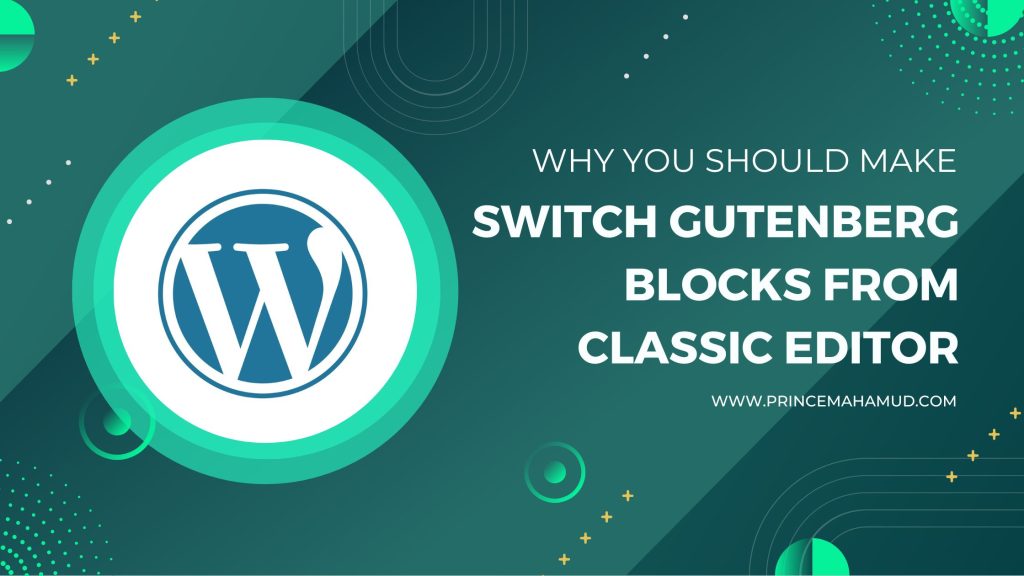A Gutenberg website (built using WordPress’s native block editor) has several advantages over other page builders like Elementor, Divi, or other heavier block systems. Here are some key reasons why Gutenberg may be considered better in many cases:
1. Speed and Performance
- Lightweight: Gutenberg is built into the core of WordPress, meaning it doesn’t require any external plugin to function. This makes it significantly lighter and faster compared to heavy page builders like Elementor and Divi, which often load additional scripts and resources, slowing down the website.
- Fewer Dependencies: Since it’s native, Gutenberg minimizes the need for extra CSS or JavaScript files, which can bloat the website and impact loading times.
2. SEO-Friendly
- Faster Load Times: Website speed is a critical ranking factor for SEO, and since Gutenberg is lightweight, it contributes to faster loading pages, which search engines like Google favor.
- Clean Code: Gutenberg generates cleaner and more streamlined code compared to page builders, which tend to output more complex and often redundant code. Clean code is easier for search engines to crawl and index.
3. Native WordPress Integration
- Built-In Editor: Gutenberg is the default WordPress editor, meaning it’s fully integrated into the WordPress ecosystem and will always be up-to-date with core updates.
- Better Compatibility: Unlike third-party builders, Gutenberg doesn’t rely on external plugins or tools, ensuring better compatibility with most WordPress themes and plugins, reducing the chance of conflicts or issues.
4. Performance on Mobile
- Responsive by Default: Gutenberg blocks are designed to be responsive without requiring extra customization, ensuring a better user experience across devices. Many third-party builders require more tweaking to achieve similar results.
- Optimized Mobile Experience: Since Gutenberg is optimized for speed and performance, it offers a smoother experience on mobile devices, where load times and performance are critical.
5. Simplicity and Usability
- Minimalist Interface: Gutenberg provides a simpler and more intuitive block-based interface compared to Elementor or Divi, which can be overwhelming with numerous options. This makes it easier for beginners or those who want to focus on content creation without learning a complex page builder.
- No Lock-In: One major issue with page builders like Elementor and Divi is the “lock-in effect,” where switching away from the builder can break the website design and structure. With Gutenberg, since it’s native to WordPress, you don’t face this issue and can easily switch themes or design approaches without major headaches.
6. Future-Proof
- Long-Term Support: As the default editor, Gutenberg will continue to receive core updates and improvements, making it a stable and future-proof solution. On the other hand, third-party page builders might fall out of favor, lose support, or become incompatible with future WordPress updates.
7. Customization and Flexibility
- Custom Blocks: Gutenberg offers a wide array of blocks, and developers can easily create custom blocks to extend functionality without relying on heavy plugins. This can keep the site lightweight while still offering powerful customization options.
- Theme Block Compatibility: Many modern themes are built with Gutenberg in mind, offering block patterns and layouts that make it easy to create beautiful, customizable designs without additional plugins.
8. Cost Efficiency
- Free and Open Source: Gutenberg is completely free and part of WordPress core, while many advanced features of Elementor and Divi come with premium pricing models. For those on a budget, Gutenberg offers robust features without the need for extra investment.
Overall, while builders like Elementor and Divi are known for their drag-and-drop ease and powerful design capabilities, Gutenberg’s light footprint, better performance, and deep integration with WordPress make it an excellent choice for many users—especially those looking for speed, simplicity, and long-term stability.


